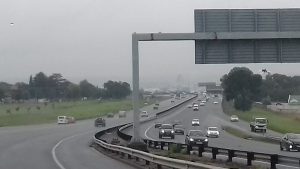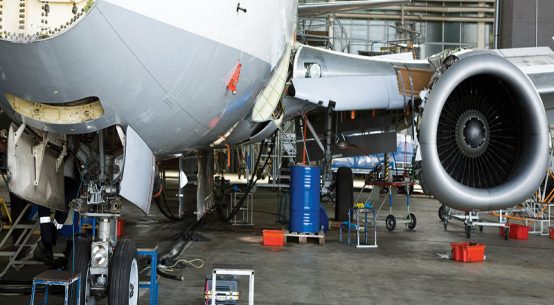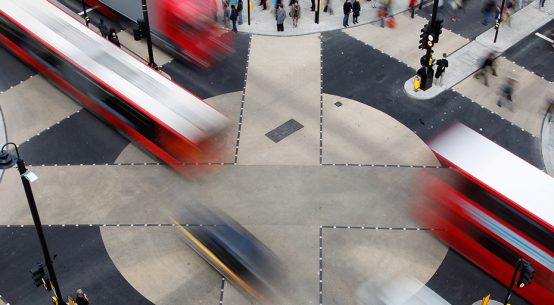
…..Proposes N5 Petrol Charge
…..0.5% tax on transport fares paid by mass transit passengers
…..Motorists, Commuters angry

Nigeria’s upper legislative chamber, the Senate, is proposing bringing back tollgates on federal roads as well as the setting aside of 0.5 per cent of transport fares paid by mass transit passengers for inter-state trips to generate funds for the rehabilitation and maintenance of roads in the country.
A levy of N5 will also be imposed on every litre of Premium Motor Spirit (petrol) and Automobile General Oil (diesel) imported or refined in the country for the same purpose.
These were part of the recommendations of the Senate Committee on Works on the National Roads Fund Establishment Bill, 2017 “for the purpose of financing the maintenance and rehabilitation of national roads.”
In a sharp reaction to this development, Motorists and commuters yesterday kicked against the proposal by the Senate to effect a N5 levy, chargeable per litre, on every petrol and diesel products imported into the country and on other non-locally refined petroleum products.
The Red Chamber said the N5 charges will be a source of revenue generation for funding and maintenance of roads in the country.
But road users, including motorists, commuters and motorcyclists in the country described the plan to effect the N5 levy on petrol and diesel an unhealthy development, which if implemented, would cause untold hardship to them.
They worry that the country is still enmeshed in recession, amidst growing list of taxes being imposed by the three tiers government and with federal government yet to come up with any concrete plan for economic stability.
Consideration of reports by the committee on the National Roads Fund Establishment Bill and the Federal Road Authority Establishment Bill, 2017 was listed on the Order Paper of Thursday.
The lawmakers, who began with the consideration of the Federal Road Authority report, however, stepped down the consideration of the National Roads Fund report to another legislative day.
The National Roads Fund is expected to generate revenue from grants and loans as well as “gifts of land, money or other property.
In the report on the National Roads Fund, the panel listed the sources of funding to include a fuel levy of N5 chargeable per litre on any volume of petrol and diesel products imported into the country and on locally refined petroleum products.
Other sources are axle load control charges and tolls not exceeding 10 per cent of any revenue paid as user charge per vehicle on any federal road designated as a toll road, which will not be applicable to roads under public-private partnership plans.
The panel also recommended international vehicle transit charges and inter-state mass transit user charge of 0.5 per cent deductible from the fare paid by passengers to commercial mass transit operators on inter-state roads.
It also proposed a roads’ fund surcharge of 0.5 per cent chargeable on the assessed value of any vehicle imported at any time into the country, as well as lease, licensing or other fees, which shall be 10 per cent of the revenue accruing from the lease or licensing or other fees pertaining to non-vehicular road usages along any federal road and collected by the federal roads agency.
The Senate Committee on Works listed the objectives of the bill to include the establishment of the National Roads Fund “to be a repository of revenues from road user related charges and other sources for financing, which shall be managed and administered for routine and periodic maintenance works on roads in Nigeria.”
It said the proposed fund would provide “predictable and sustainable funding for road maintenance and promote the sustainable management of the road networks; establish the governing board, which shall be responsible for the management of the fund; and create an enabling environment for private sector participation, management and financing in the road sector.”
The lawmakers recommended that the National Roads Fund be established with high level of independence under the jurisdiction of the Federal Ministry of Finance, which would only oversee it for policy direction.
Leadership newspaper also reported that the may have received the tacit nod of the Lagos Chamber of Commerce and Industry (LCCI). Its director-general, Mr. Muda Yusuf, was said to have agreed with the Senate that the country cannot continue to fund maintenance of its roads from the budget.
“All over the world there is always this kind of funds that is created specifically for the funding of the roads”, he stated, noting that, while the state of Nigeria roads are very deplorable at the moment, it is a major infrastructure that the country needs in support the economy.
Muda added that one of the best way to deal with the issue of the road is to create the road funds, saying the road fund is a good idea.
He, however, said that how the funds will be generated is something the country would have to deliberate well on, depending on the prevailing social economic condition.
He added that, with a lot of challenges and difficulties facing the citizens, the government needs to choose the right time, even though the concept is desirable.








